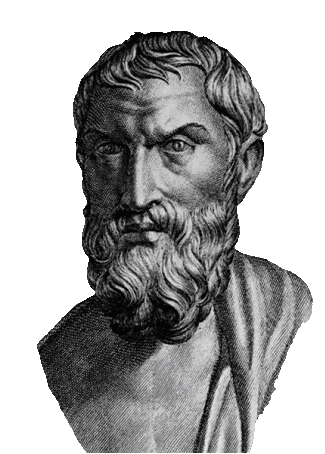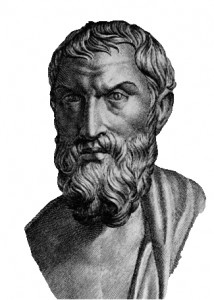The Key To Distinguishing The “Greatest Good” from the “Goal” of Life: “Every supreme good … is meaningless to the dead; every supreme good presumes life.”
Because the terms are so regularly discussed, it is necessary to work to gain and keep a clear view of the difference between the “greatest good” of life and the “goal” of life.
As Norman DeWitt explained, “Epicurus scored a logical point over his predecessors in drawing a distinction between the greatest good, which he declared to be life itself, and the end or telos. His predecessors, when they defined the good or telos as that to which all other goods were referred while the good itself was referred to nothing, were illogical. Every supreme good, even the eudaemonistic good of Aristotle, is meaningless to the dead; every supreme good presumes life. It was very natural that Epicurus should have been the one to place the finger upon this confusion of thought; since he denied immortality, he discerned that all values must be concentrated in the space between birth and death. Life itself became the greatest good. Modern editors, however, still labor under the old misapprehension that pleasure is the Epicurean summum bonum and emend the text in order to save the fallacy.
With this issue in mind I have added the following two entries to the FAQ page:
What did Epicurus say was the “greatest good” of human life?
- Norman DeWitt explains in Epicurus and His Philosophy that due to translation issues there is much confusion today between the concepts of the “greatest good” and the “goal” of human life. He explains the proper distinction in the chapter entitled “The New Hedonism” which contains the following:
- “The belief that life itself is the greatest good conditions the whole ethical doctrine of Epicurus. He sees life as narrowly confined between the limits of birth and death. Soul and body are born together and perish together. Metrodorus gave telling expression in figurative language to this melancholy belief, Vatican Saying 30: “The potion mixed at birth for all of us is a draught of death.” There was for Epicureans no pre-existence, as Plato believed, and no afterlife, as the majority of mankind believed. Epicurus himself expressed the thought with stark directness, Vatican Saying 14: “We are born once and we cannot be born twice but to all eternity must be no more.” Thus the supreme values must be sought between the limits of birth and death. The specific teaching that life itself is the greatest good is to be drawn from Vatican Saying 42: “The same span of time includes both beginning and termination of the greatest good.” If this seems to be a dark saying, the obscurity is dispelled by viewing it as merely a denial of belief in either pre-existence or the afterlife. As Horace wrote, concluding Epistle i.16 with stinging abruptness, “Death is the tape-line that ends the race of life.” Editors, however, misled by the summum bonum fallacy, equate “the greatest good” with pleasure and so are forced to emend. The change of a single letter does the trick but fundamental teaching is obliterated. While this quoted statement is first-hand evidence of the Epicurean attitude, the syllogistic approach is also known from an extant text, of which the significance has been overlooked. The major premise is the assumption that the greatest good must be associated with the most powerful emotions, that is, the worst of all fears and the greatest of all joys. Now the worst of all fears is that of a violent death and the greatest of all joys is escape from the same. The supporting text runs as follows: “That which occasions unsurpassable joy is the bare escape from some dreadful calamity; and this is the nature of ‘good,’ if one apprehend it rightly and then stand by his finding, and not go on walking round and round and harping uselessly on the meaning of ‘good’.” This passage marks the summary cutting of a Gordian knot, the meaning of “good,” upon which Plato had harped so tediously. Epicurus finds a quick solution by appealing to the Feelings, that is to Nature, as the criterion; it is their verdict that the supreme good is life itself, because the strongest emotions are occasioned by the threat of losing it or the prospect of saving it.
What did Epicurus say was the “goal” of human life?
- Continuing in the same chapter (“The New Hedonism”) DeWitt explains the distinction between the “greatest good,” which Epicurus held to be life itself, and the “goal” of human life, which is pleasure:
- “When once the summum bonum fallacy has been detected and the difference clearly discerned between the greatest good, which is life itself, and the end or telos, the next step is to apprehend clearly by what procedure the end or telos is identified as pleasure. The nature of this procedure and of the attitude which determined it was one thing in the time of Cicero and quite another in the time of Epicurus himself. In the space of the two centuries between these two men the study of formal logic had been forced into a dominating position in the curriculum through the aggressive genius of the Stoic Chrysippus, and after his time the incessant needling of Stoic adversaries had shaken the confidence of many Epicureans in the word of their founder. The faith of Epicurus himself had pinned itself upon Nature as the norm, not upon Reason. The faith of the Stoic, on the contrary, and of those Epicureans who wavered in their faith, while ostensibly pinned upon Reason, may more correctly be said to have been pinned upon argumentation and disputation. When Epicurus himself identified pleasure as “the end of Nature” he was setting Reason aside and recognizing Nature as the norm or as furnishing the norm. In this he was merely following a trend of his time. The brilliant Eudoxus, for example, who had preceded him by no great interval, also declared pleasure to be the good and he took his start from the observation that all creatures, whether rational or irrational, pursued it. Confirmation for the truth of this observation was found in the behavior of all creatures toward pain. If we may accept as authentic the tradition as reported by Aristotle, it would seem that Eudoxus thought of the pursuit of pleasure as comparable to the instinct of wild creatures to seek their proper food and to avoid the opposite. This demonstrates clearly the incipient tendency to recognize Nature as furnishing the norm. Thus the originality of Epicurus did not consist in recognizing Nature as furnishing the norm but in working out this principle to its utmost limit, which he did by setting up his Canon, each item of which, Sensations, Anticipations, and Feelings, was a separate appeal to the authority of Nature. In identifying pleasure as the end or telos it is both possible and probable that Epicurus was taking up a suggestion of Aristotle, who dropped the hint in this instance that the evidence drawn from the behavior of irrational creatures is superior in value to the evidence drawn from the behavior of rational creatures. At any rate the declaration of Epicurus, as reported by Cicero, runs as follows: “Every living creature, the moment it is born, reaches out for pleasure and rejoices in it as the highest good, shrinks from pain as the greatest evil, and, so far as it is able, averts it from itself.” In the evaluation of this text the important words are “the moment it is born.” By narrowing the field of observation to the newborn creature Epicurus was eliminating all differences between rational and irrational creatures. In infancy even the creatures that by courtesy we call rational are as yet irrational. By narrowing the field to the newborn Epicurus was also reducing animate life to its minimum value, because at the moment of birth even some of the senses have not yet begun to function. Consequently, as Cicero says in the same context, “since nothing is left of a human being when the senses are eliminated, the question, what is according to Nature or contrary to Nature, is of necessity being judged by Nature herself.” It is doubtful whether any other item of Epicurean invention is the equal of this in logical acumen. Even if weight be allowed to the later objection of the Stoics that the behavior of the infant has its cause in what we now call the instinct of self-preservation, this interpretation would lead to the recognition of life as the greatest good, which was the doctrine of Epicurus, and it would still be left for pleasure and pain to function as the criteria. Incidentally, this appeal to the evidence afforded by the newly born exercised its effect upon the terminology of Epicurus. The infant, being still in a state of nature, is “not yet perverted.” These words afford a hint of the perversion ascribed to the study of rhetoric, dialectic, and mathematics, which a lad was judged lucky to have escaped. As for Nature herself, she speaks through the newly born “undefiled and uncontaminated.” Her word is “true philosophy,” the vera ratio so often invoked by Lucretius.”


